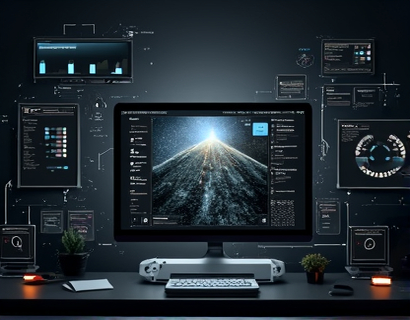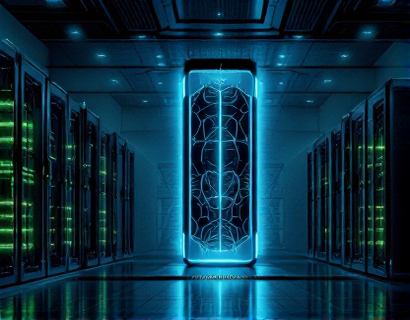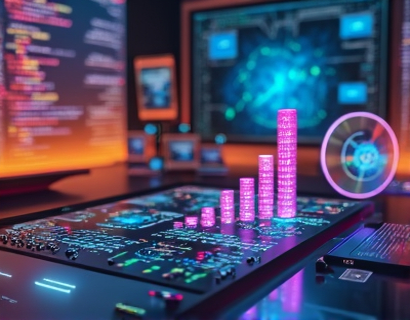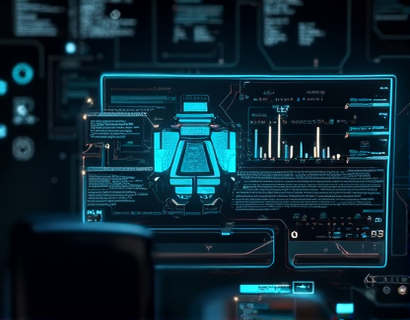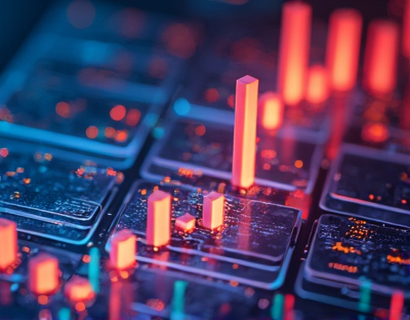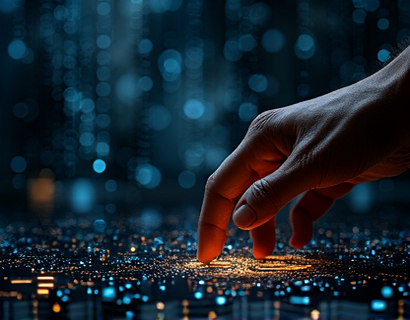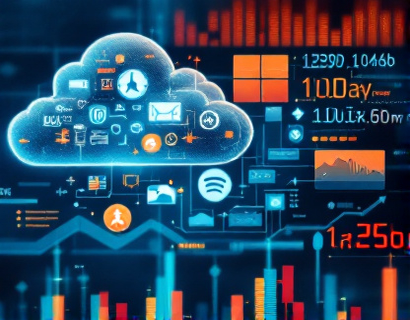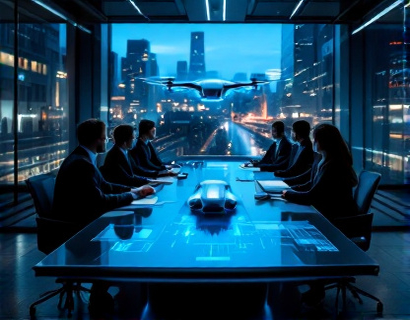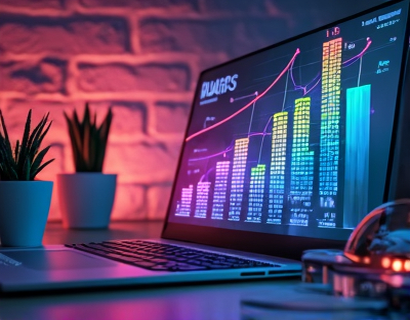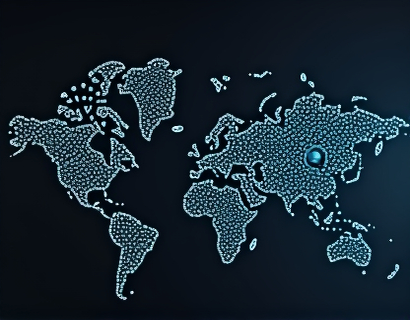Decentralized AI and Crypto: Transforming Ucosystem Applications for Enhanced Digital Experiences
The digital landscape is undergoing a significant transformation, driven by the convergence of decentralized artificial intelligence (AI) and cryptocurrency. This fusion is paving the way for innovative applications that enhance user engagement and redefine interactions in the digital ecosystem. As we delve into this exciting intersection, we will explore how decentralized AI and crypto are revolutionizing Ucosystem applications, creating a more immersive and efficient digital experience.
Understanding Decentralized AI
Decentralized AI refers to the deployment of artificial intelligence technologies in a distributed manner, often utilizing blockchain technology. This approach allows for greater transparency, security, and accessibility, as data and algorithms are not controlled by a single entity. Instead, they are spread across a network of nodes, enabling collaborative learning and decision-making.
One of the key advantages of decentralized AI is its ability to harness the collective intelligence of users. By allowing individuals to contribute data and insights, decentralized AI systems can improve their algorithms and outputs over time. This collaborative model not only enhances the accuracy of AI predictions but also democratizes access to advanced technologies, making them available to a broader audience.
The Role of Cryptocurrency in Decentralized AI
Cryptocurrency plays a crucial role in the ecosystem of decentralized AI. It serves as a medium of exchange, enabling users to transact and interact within decentralized applications (dApps) seamlessly. By utilizing cryptocurrencies, developers can incentivize users to participate in the network, whether through data sharing, algorithm training, or other contributions.
Moreover, cryptocurrencies can facilitate microtransactions, allowing users to pay for specific services or features within a dApp without the need for traditional payment methods. This flexibility not only enhances user experience but also opens up new revenue streams for developers and service providers.
Transforming Ucosystem Applications
The integration of decentralized AI and cryptocurrency is giving rise to a new generation of Ucosystem applications that prioritize user engagement and satisfaction. These applications leverage advanced algorithms to provide personalized experiences, streamline processes, and enhance overall functionality.
1. Personalized User Experiences
Decentralized AI enables Ucosystem applications to analyze user behavior and preferences in real-time. By processing vast amounts of data, these applications can deliver tailored content, recommendations, and services that resonate with individual users. This level of personalization not only improves user satisfaction but also fosters loyalty and long-term engagement.
2. Enhanced Security and Privacy
In an era where data breaches and privacy concerns are rampant, decentralized AI offers a solution by ensuring that user data is stored securely and transparently. Blockchain technology provides an immutable record of transactions and interactions, allowing users to maintain control over their data. This enhanced security fosters trust between users and service providers, encouraging more individuals to engage with Ucosystem applications.
3. Streamlined Processes
Decentralized AI can automate various processes within Ucosystem applications, reducing the need for manual intervention and increasing efficiency. For instance, smart contracts can facilitate automated transactions based on predefined conditions, eliminating delays and minimizing errors. This streamlining of processes not only enhances user experience but also reduces operational costs for developers.
4. Collaborative Learning
Decentralized AI thrives on collaboration, allowing users to contribute to the learning process. By sharing data and insights, users can help improve the algorithms that power Ucosystem applications. This collaborative approach not only enhances the accuracy of AI predictions but also fosters a sense of community among users, as they work together to create better digital experiences.
Real-World Applications of Decentralized AI and Crypto
The potential of decentralized AI and cryptocurrency is already being realized across various industries. Here are some notable examples of how these technologies are transforming Ucosystem applications:
1. Decentralized Finance (DeFi)
DeFi platforms leverage decentralized AI to analyze market trends, assess risks, and optimize investment strategies. By utilizing AI algorithms, these platforms can provide users with personalized financial advice and automated trading options, enhancing their overall experience in the financial ecosystem.
2. Supply Chain Management
Decentralized AI can improve transparency and efficiency in supply chain management. By utilizing blockchain technology, companies can track the movement of goods in real-time, while AI algorithms analyze data to optimize logistics and reduce costs. This combination enhances user trust and satisfaction, as consumers can verify the authenticity and origin of products.
3. Healthcare
In the healthcare sector, decentralized AI can facilitate personalized treatment plans based on individual patient data. By analyzing medical histories and genetic information, AI algorithms can recommend tailored therapies, improving patient outcomes. Additionally, blockchain technology can ensure the secure sharing of medical records, enhancing privacy and trust between patients and healthcare providers.
4. Gaming
The gaming industry is also experiencing a transformation through decentralized AI and cryptocurrency. Players can earn cryptocurrency rewards for their in-game achievements, while AI algorithms analyze player behavior to create personalized gaming experiences. This integration not only enhances user engagement but also creates new economic opportunities within the gaming ecosystem.
Challenges and Considerations
While the potential of decentralized AI and cryptocurrency is immense, there are several challenges and considerations that must be addressed to fully realize their benefits:
1. Scalability
As decentralized applications gain popularity, scalability becomes a critical concern. Ensuring that AI algorithms can process large volumes of data efficiently while maintaining performance is essential for user satisfaction. Developers must explore innovative solutions to enhance the scalability of decentralized AI systems.
2. Regulatory Compliance
The regulatory landscape surrounding cryptocurrency and decentralized applications is still evolving. Developers must navigate complex legal frameworks to ensure compliance while fostering innovation. This requires a proactive approach to understanding and adapting to regulatory changes.
3. User Education
For decentralized AI and cryptocurrency to gain widespread adoption, users must be educated about their benefits and functionalities. Providing accessible resources and support can empower users to engage with these technologies confidently, enhancing their overall experience.
The Future of Decentralized AI and Crypto
The future of decentralized AI and cryptocurrency is bright, with the potential to reshape the digital landscape significantly. As these technologies continue to evolve, we can expect to see even more innovative Ucosystem applications that prioritize user engagement and satisfaction.
In the coming years, advancements in AI algorithms will enable even more personalized experiences, while improvements in blockchain technology will enhance security and transparency. As a result, users will have access to a diverse range of digital solutions that cater to their unique needs and preferences.
Conclusion
The merging of decentralized AI and cryptocurrency is transforming Ucosystem applications, creating a new wave of digital experiences that prioritize user engagement and satisfaction. By harnessing the power of collaborative learning, enhanced security, and streamlined processes, these technologies are redefining interactions in the digital landscape.
As we move forward, it is essential to address the challenges and considerations associated with decentralized AI and cryptocurrency to fully realize their potential. By fostering innovation, ensuring regulatory compliance, and educating users, we can unlock the full capabilities of these technologies and create a more immersive and efficient digital ecosystem.







